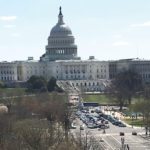
Tag Archives North American Free Trade Agreement

Canada fights back with its own tariffs
The Trump administration charges Canucks have taken advantage, especially on agriculture

Senior American legislators optimistic about NAFTA talks
U.S. farmers would welcome a deal and it would let U.S. trade negotiators focus on pushing China to the trade bargaining table

American farmers want markets, not subsidies, legislators say
Trump promises to protect wary farmers if there’s a trade war between the U.S. and China
Canadian farmers deny U.S. dumping allegations on dairy
Low milk prices in the United States are due to overproduction, not a lack of access to Canada’s dairy market, says Dairy Farmers of Canada
Editorial: Why all the fuss?

Agriculture manufacturers on edge over trade
The nearly $2-billion-a-year industry lives and dies on trade and uncertainty is making it nervous

Trade wars and food fights
It would appear Bill Morneau is happy fiddling while our economy burns

Canada faces an uphill challenge in NAFTA talks
Rona Ambrose says under every scenario the U.S. wins and Canada faces economic uncertainty

Supply management protects few, could harm more

Canada, U.S. exchange barbs over NAFTA talks as stresses rise
Canada says the U.S. seeks only to weaken its partners during the challenging renegotiation




